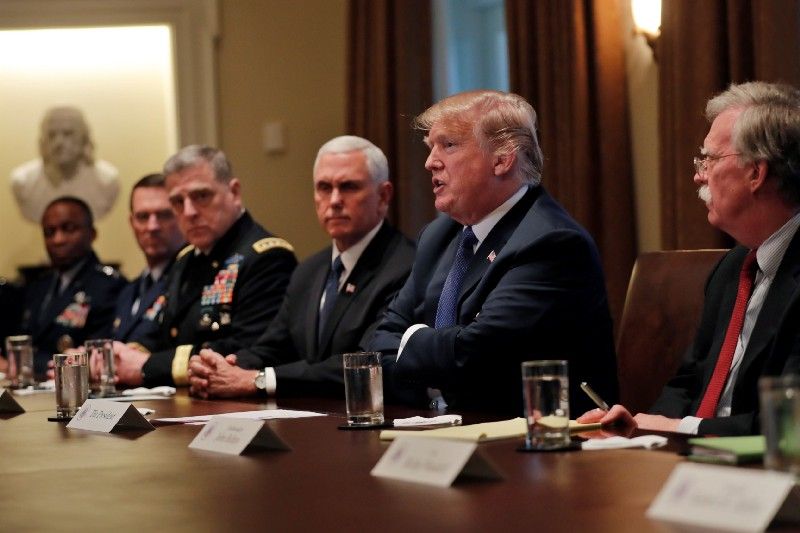Donald Trump’s critics say his foreign policy choices are foolish and dangerous. They hope he’ll be guided by the wise counsel of seasoned experts.
At a moment when US foreign policy choices have rarely been more contentious and opinions are often clouded by political approval of, or animus toward, those in charge, it is….
Time to play devil’s advocate.
Trump: A US attack is coming on the “gas killing animal” Assad.
Experts: Firing missiles at Syria comes with risks, and it won’t make things better.
The case for Trump: If Syrian President Bashar al-Assad has again used chemical weapons against Syrian civilians, he’s violated the Chemical Weapons Conventionand committed an act of pure evil. Russia, Assad’s ally, will block UN action. How can the US raise the cost of such crimes for Assad and send an unmistakable warning to those who might do such a thing in future? Who else will enforce the chemical weapons ban?
Trump: US troops should leave Syria “very soon.”
Experts: ISIS isn’t finished, and Russia won’t fight them. Don’t repeat the mistakes of the retreat from Iraq.
The case for Trump: The Russians haven’t attacked ISIS because they know the US will do it for them. When ISIS attacks Russia, as it has in the past, and when Russia and ISIS are left to fight over Syrian territory, Russians will pound ISIS as US troops and taxpayers watch from a safe distance.
Trump: Syria is not our problem.
Experts: You can’t just leave Syria to Russia and Iran.
The case for Trump: The US has spent far more in Iraq and Afghanistan than on the entire Marshall Plan. What does Washington have to show for it? How much more should the American taxpayer spend on failed projects in the Middle East?
Trump: I’ve been tough on Russia.
Experts: Trump has been soft on Russia.
The case for Trump: Trump has endorsed a National Security Strategy that labels Russia a “revisionist power” that uses “modernized forms of subversive tactics” to “interfere in the domestic political affairs of countries around the world.”
Trump: I’ve been tough with Putin.
Experts: Trump is too nice to Putin.
The case for Trump: The president has called out Putin for backing “Animal Assad” in Syria, approved sanctions on two dozen Russian oligarchs and state officials close to Putin, approved the sale of lethal weapons to Ukraine, expelled diplomats, and closed the Russian consulate in Seattle. He probably won’t let Moscow have the Miss Universe Pageant again either.
Trump: Our NATO allies are free-riding.
Experts: Criticizing NATO allies alienates valuable friends and encourages Russia to test NATO resolve.
The case for Trump: When Trump arrived in office, just five of NATO’s 28 members were spending the 2 percent of GDP on defense required of all members. Following Trump’s criticism, 15 of those governments have responded by spending more. That strengthens NATO, and it’s good for the United States.
Trump: Americans deserve better deals on trade.
Experts: Trump’s threats to existing trade deals encourage protectionism that will hurt Americans.
The case for Trump: If the president can force favorable changes to NAFTA, and if tariff threats earn concessions from China without starting the trade wars many experts fear, these moves will have helped Americans in hard-hit industries and US companies doing business overseas.
The bottom line: There are strong counter-arguments to every one of these points, but they all deserve debate that extends beyond anyone’s opinion of Donald Trump, his style, and his character.
